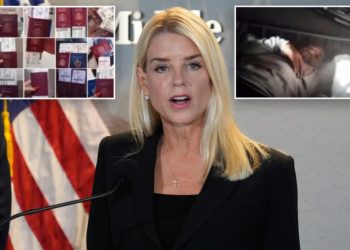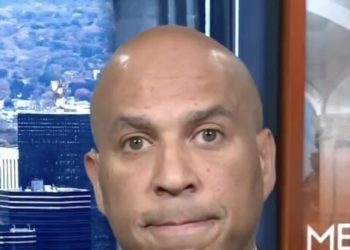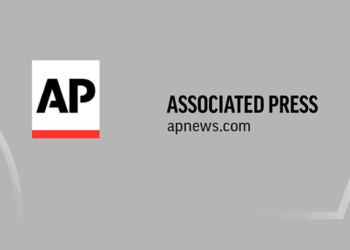Electric or gas? The battle over the future of the automobile is far from over. Trump may have killed the federal EV mandate, but California’s still pushing hard for zero-emission vehicles, with a plan to phase out new gas-powered car sales by 2035.
While most of the industry is taking a wait-and-see approach, six major automakers — Ford, Honda, Volkswagen, BMW, Aston Martin, and Volvo — are firmly on Team California, whether they like it or not. That’s thanks to contracts they signed in 2019 locking them into the state’s strict emissions rules through 2026.
Are Ford, Honda, and the others at a disadvantage, stuck with more costly standards? Or are they ahead of the curve, ready for a future where emissions rules only get tougher?
Bad bet?
California muscle
To be fair, the odds may have looked a little better six years ago. California isn’t just the land of beaches and Hollywood — it’s a regulatory powerhouse in the auto world. Thanks to Section 209 of the Clean Air Act, the Golden State has a unique privilege: It can set tougher vehicle emissions standards than the federal government as long as the Environmental Protection Agency gives it a thumbs-up.
Why? Decades ago, California started battling smog in cities like Los Angeles, and it’s been a trailblazer in clean air policy ever since. More than a dozen states — New York, Massachusetts, and Oregon among them — follow California’s emissions standards, impacting about a third of the U.S. auto market.
Back in 2019, things got messy. The Trump administration pulled California’s EPA waiver, aiming to enforce one federal standard for fuel economy and emissions under the Corporate Average Fuel Economy program. This move was like throwing a wrench into the auto industry’s engine. California pushed back hard, and automakers were caught in the crossfire, facing a patchwork of rules. Enter the California Framework Agreements — a deal that would tie six automakers to California’s standards, no matter what happened in Washington.
Locked in
In July 2019, Ford, Honda, Volkswagen, and BMW stepped up to the plate, signing voluntary but ironclad agreements with the California Air Resources Board. Aston Martin and Volvo later jumped on board. These Framework Agreements committed the automakers to boosting fuel efficiency by roughly 3.7% annually and slashing greenhouse gas emissions for vehicles sold in California and its allied states, all the way through the 2026 model year.
Why sign on to such a deal? For these companies, it was a calculated move. The 2019 revocation of California’s waiver created a regulatory nightmare — automakers faced the prospect of designing cars for two different sets of rules. By aligning with California, these six sidestepped potential lawsuits, gained a clear roadmap for compliance, and scored some eco-friendly street cred.
It was a bet that California’s influence would outlast federal flip-flops. But here’s the thing: These contracts are binding, no matter what the feds do. Even when the Biden administration restored California’s waiver in 2022, these automakers were still on the hook for the 2019 terms.
Federal trumps state
Not every company was ready to tie itself to California’s control. Big players like General Motors, Toyota, and Stellantis leaned toward the Trump administration’s push for a single federal standard, hoping to simplify their lives. This split has created a fascinating divide in the industry as well as some potential nightmares.
Imagine the auto market as a chessboard. The six signatories are playing a long game, betting on California’s standards becoming the industry benchmark. Meanwhile, their rivals have more flexibility, aligning with federal rules that might be looser or stricter depending on the political winds.
This raises a big question: Are Ford, Honda, and the others at a disadvantage, stuck with more costly standards? Or are they ahead of the curve, ready for a future where emissions rules only get tougher?
RELATED: GM’s electric gamble is failing — but Barra won’t hit the brakes
Consumer retorts
So what does this mean for the cars you drive? Meeting California’s standards is no small feat. It demands serious cash for research and development for hybrid systems, electric vehicles, and cutting-edge engines that sip fuel. For Ford, Honda, Volkswagen, BMW, Aston Martin, and Volvo, these costs are locked in through 2026. That could mean pricier vehicles for buyers in California and its partner states, as automakers pass on the expense of compliance to customers.
For you, the consumer, it’s a mixed bag. Cars meeting California’s standards might save you money at the pump with better fuel economy or lower emissions. But upfront costs could sting, especially for budget-conscious buyers. If you live in a state following California’s rules, your car options might differ from those in, say, Texas or Ohio, where federal standards apply. It’s a patchwork market, and these six automakers are navigating it under stricter rules than their rivals.
Read ’em and weep?
California’s ability to set its own standards has sparked heated debates. Supporters say it’s a vital check on federal inaction, pushing automakers to innovate and clean up the air. Critics argue it’s a bureaucratic headache, forcing companies to juggle conflicting rules and driving up costs. The Framework Agreements tilt the scales toward California, proving its influence even when federal policy wavers.
It’s not such a great deal for the six automakers who signed those agreements. If federal standards get tougher, they might face overlapping rules. If they loosen, their competitors could gain an edge. The outcome will shape the industry for years to come.
In the meantime, the six are already gearing up, pouring billions into EVs and hybrids even with lower sales and losses. Ford’s betting on electric vehicles with its new manufacturing processes, Honda’s refining its hybrid tech and continuing its partnership with GM, and BMW, Volvo, Volkswagen, and Aston Martin are trying to figure out how to balance electric cars with what car people want. It’s a tough situation.
If you want an electric vehicle, I suggest you move quickly and buy one before the end of September 2025, where the tax credit for new and used EVs disappears.
The post Ride or die: How Ford, Honda, VW, and 3 more got stuck with California’s strict emission standards appeared first on TheBlaze.




